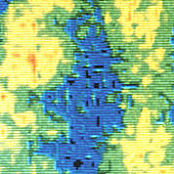The job of a nuclear medicine technologist is very specialized, but is also centered around the patients. A technologist in this field can specialize in several areas such as pediatrics, cardiology, positron-emission tomography (PET) and also three-dimensional imaging. This article discusses what these technologists do, their educational requirements, job outlook statistics, and what you can expect to earn in this field.
A nuclear medicine technologist's duties can run the gamut of patient care. These individuals often interview patients for their medical histories, prepare and administer radioactive substances that will be used, operate highly specialized equipment to produce clear images, and also possibly work in a laboratory setting. Nuclear imaging is a noninvasive method of producing images, and it generally exposes the patient to an amount of radiation equal to that of a typical X-ray. The successful technologist is a person who has a high level of attention to detail, and can often pick up on nuances of a patient's self-described symptoms in preparation for the testing itself.
The need for certification may depend on the state in which you work, and this information is generally found on the website of your state's department of health. Certifications are available for the standard nuclear medicine technologist, but there are also specialized certifications for a nuclear medicine advanced associate (who will have more training within an advanced program), a PET technologist and a nuclear cardiology technologist. Certification is sought after completion of a program recognized by one of the certifying agencies.
While the number of jobs in this field is not expected to grow as much as some other medical fields, such as nursing, the U.S. Bureau of Labor Statistics expects that this field will grow by about 19 percent through the year 2020. In 2010, the median salary for this profession was just under $69,000, while nursing, which has similar educational requirements, had a slightly lower median salary of nearly $65,000 in 2010.
For the right individual who is equally interested in physiology, chemistry, and mathematics, as well as the diagnosis and care of patients, the field of nuclear medicine technology can provide a lifetime of challenging but rewarding work. To learn more about this profession, you can visit The American Registry of Radiologic Technologists.
Photo Source: Wikimedia Commons
[cf]skyword_tracking_tag[/cf]


